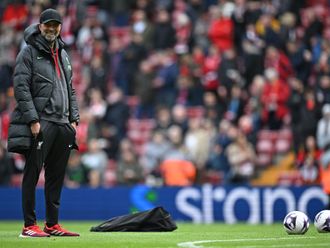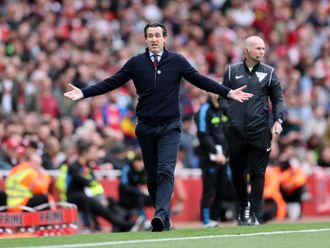Scorched into the eyelids of every England fan is the image of Gareth Southgate planting his penalty into the palms of a German keeper.
Twenty-two years after that Euro ’96 semi-final shoot-out defeat — the last time the Three Lions genuinely held a claim to a title, and the last and only other time, bar 1990 and 1966, that they reached the last four of a tournament — and Southgate is back.
He may not be the preferred choice of coach, much like he wasn’t the preferred choice on that ill-fated night at Wembley to take that sixth penalty, but he has at least stepped up again at a time when others have shied away from the responsibility.
It is impossible to gauge how much of an impact that miss must have had on his career, and he probably downplays it, but inside there must be a rage, the type of rage that few other England managers can relate to.
The type of rage that saw Stuart Pearce unleash wild fury in his celebration after converting a penalty against Spain at Euro ’96, six years after having missed from the spot in the semi-final against Germany at Italia ’90. The only difference is that unlike Pearce, Southgate hasn’t buried that demon, and his baggage is still raw, burdening and following him onto the touchline.
If you had to personify England now — a team that got knocked out to Iceland in the second round of the last Euros, and couldn’t get out of the group at the last World Cup — it wouldn’t be a brave and bleeding Paul Ince or Terry Butcher; a bold and fearless Pearce; or even a masked tragicomic like Paul Gascoigne.
England is in fact a wounded, understated, quiet and diminutive 47-year-old from Watford, who despite his best efforts over the past 30 years in football, is remembered for one thing and one thing only: missing out.
Southgate and England complement each other perfectly as both equally have to make amends, and with the expectation of them doing so now at an all-time low, they might finally have the time and space the need to move on.
Redemption for them both, wouldn’t necessarily be in winning the World Cup or even making the semi-finals (ala 1990 and 1996), as it is clear there’s now a marked difference in the quality over generations from the 1990s until today.
However, getting out of the group would be a start and surpassing the Last 16 and reaching the quarters — two things they haven’t done in the last two tournaments under Roy Hodgson since the bowing out of a decent generation — would be a closure for all going forward.









